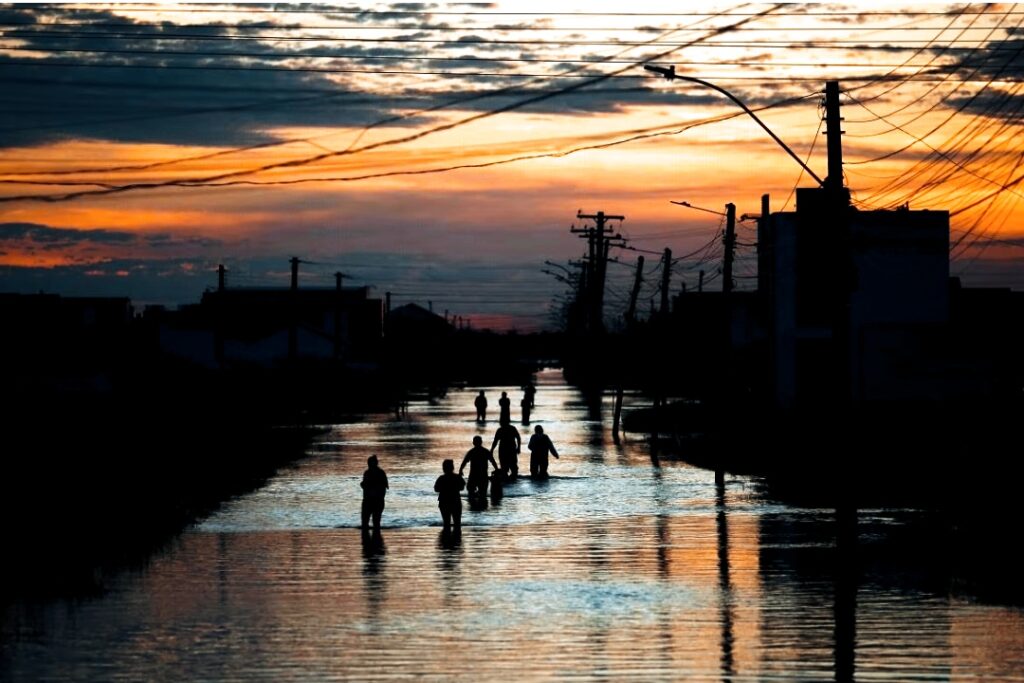Manashimaya

In the heart of South America, Brazil’s landscape is witnessing an alarming phenomenon – persistent floods. These recurring deluges have devastated communities and raised the specter of climate migration. As the world grapples with the consequences of environmental degradation, the plight of those affected by these floods is a stark reminder of the urgent need for climate action.
The persistent Brazil floods, exacerbated by climate change, have become a recurrent nightmare for many Brazilians. With each year, these floods intensify, wreaking havoc on homes, infrastructure, and livelihoods. The cycle of destruction perpetuated by these natural disasters has left communities grappling with uncertainty and despair.
In the face of such adversity, the concept of climate migration looms large. As homes are destroyed and lands rendered uninhabitable, many Brazilians find themselves with no choice but to seek refuge elsewhere. The specter of climate migration haunts those who are forced to uproot their lives in search of safety and stability.
The consequences of persistent Brazil floods extend far beyond the immediate physical damage. The socio-economic fabric of affected communities is unraveling, with livelihoods lost and futures uncertain. The ripple effects of these floods are felt across industries, from agriculture to tourism, further exacerbating the challenges faced by residents.
Climate change is a factor in this dilemma that cannot be disregarded. The frequency and intensity of natural disasters like floods in Brazil are rising due to a combination of variables such as melting ice caps, rising global temperatures, and unpredictable weather patterns. To lessen the effects of climate change and increase resilience in susceptible areas, immediate action is required.
Though the ongoing floods in Brazil have presented difficulties, there remains optimism for the future. Communities are showing resiliency and unity in times of disaster by banding together to support one another through hardship. There is a rising understanding of the need to address the underlying causes of climate change and make investments in sustainable solutions, from community-based projects to government-led initiatives.
Using land use and infrastructure that is climate resilient is one such solution. Through the construction of resilient infrastructure and the adoption of sustainable land-use practices, we can lessen the effects of future flooding and safeguard communities that are at risk. Furthermore, investing in early warning systems and preparedness strategies can aid in lowering the number of people killed and property destroyed by these types of natural catastrophes.
In addition, worldwide cooperation is required to address the fundamental causes of climate change like Global cooperation, to address this existential threat, from encouraging renewable energy sources to lowering greenhouse gas emissions. We can only hope to lessen the effects of climate change and stop additional destruction from recurring floods and other natural disasters.
We need to move quickly and decisively to address the ongoing flooding in Brazil as well as the threat of climate migration. The decisions we make now will determine the fate of our planet and the welfare of future generations. By putting sustainability, resilience, and solidarity first, we can create a more promising and safe future for everybody.
